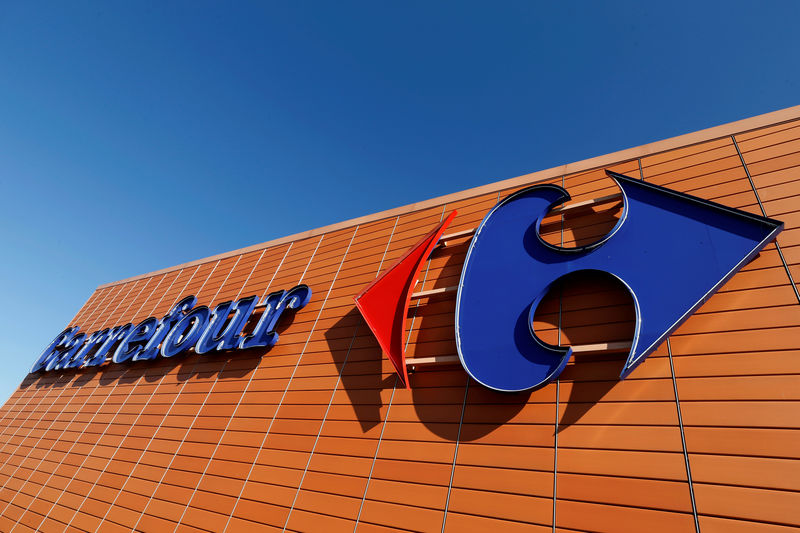By Emma Thomasson
BERLIN (Reuters) - French retailer Carrefour (PA:CARR) SA has seen sales boosted by the use of blockchain ledger technology to track meat, milk and fruit from farms to stores and will extend it to more products to increase shopper trust, an executive said on Monday.
Blockchain's digital tracking technology allows customers to see detailed information on products like when it was harvested or packed - reassuring them on the quality of items they buy and allowing them to avoid products with genetically modified organisms, antibiotics or pesticides if they want.
Carrefour has launched blockchain information for 20 items including chicken, eggs, raw milk, oranges, pork and cheese, and will add 100 more this year with a focus on areas where consumers want reassurance, like baby and organic products.
"You are building a halo effect - 'If I can trust Carrefour with this chicken, I can also trust Carrefour for their apples or cheese,'" Emmanuel Delerm, Carrefour's blockchain project manager, told Reuters at a conference.
Carrefour is among several leading companies tapping into the growing use of blockchain to track where products come from, as consumers increasingly look to ensure that products meet standards on ethics and general safety.
Carrefour has worked on the blockchain system together with IBM (NYSE:IBM), which is collaborating with a number of retailers, logistics firms and growers on systems to track and secure their global supply chains.
Blockchain, best known as the technology underlying cryptocurrency bitcoin, is a shared record of data kept by a network of individual computers rather than a single party.
Customers can scan a QR barcode on a pomelo grapefruit with their phone and find out the date of harvest, location of cultivation, the owner of the plot, when it was packed, how long it took to transport to Europe and tips on how to prepare it.
"The pomelo sold faster than the year before due to blockchain," Delerm said. "We had a positive impact on the chicken versus the non-blockchain chicken."
The initiative has proved most popular so far in China - where it is already common for shoppers to scan QR codes, followed by Italy and France, with some people spending as long as 90 seconds reading the provenance information.
They are interested in information about the origin of products and how animals are cared for, with one video of a farmer with his chickens proving popular, he said.
"Millennials are buying less but buying better products for their health, for the planet," Delerm said.
There are still challenges to overcome, such tracking fruit and vegetables sold loose that come from different farms, and resistance from farmers to sharing too much information, he added.
Carrefour wants to add non-food lines in future like clothing, as well as more information, such as how much the farmer gets out of the shelf price. It is also experimenting with ways to identify products that do not rely on a QR code.

While Carrefour is focusing the project on its own brands, it has also worked with Nestle on giving consumers access to blockchain data for its Mousline potato puree, allowing them to see it is only made from French potatoes.